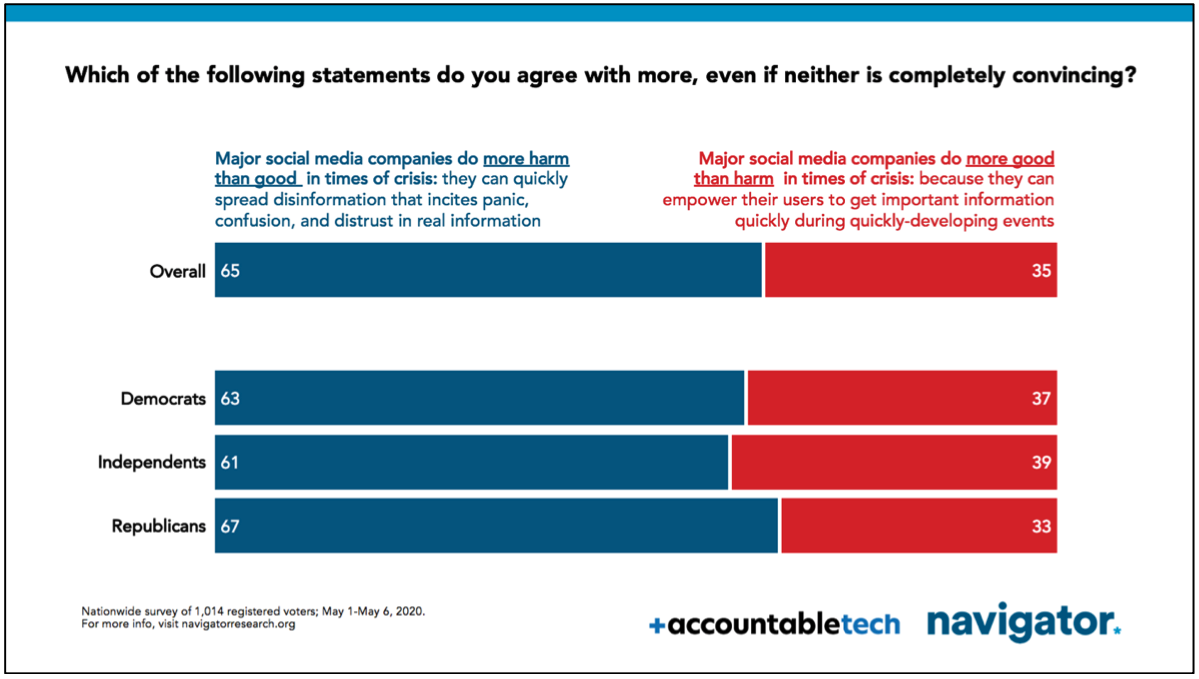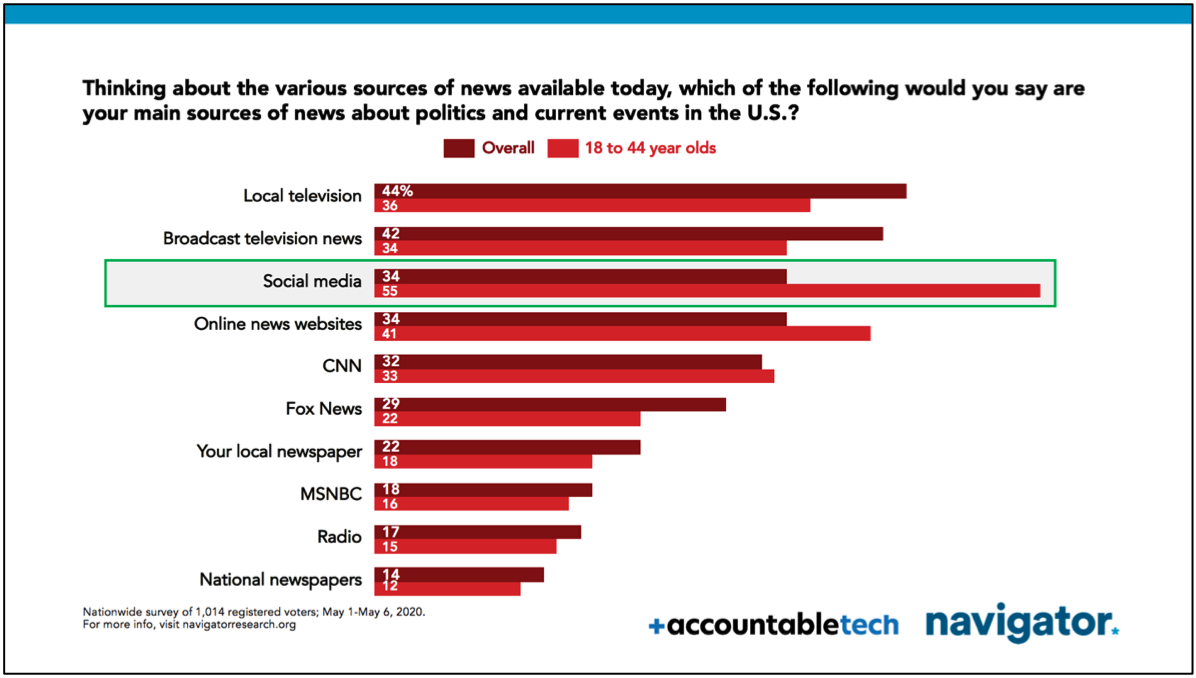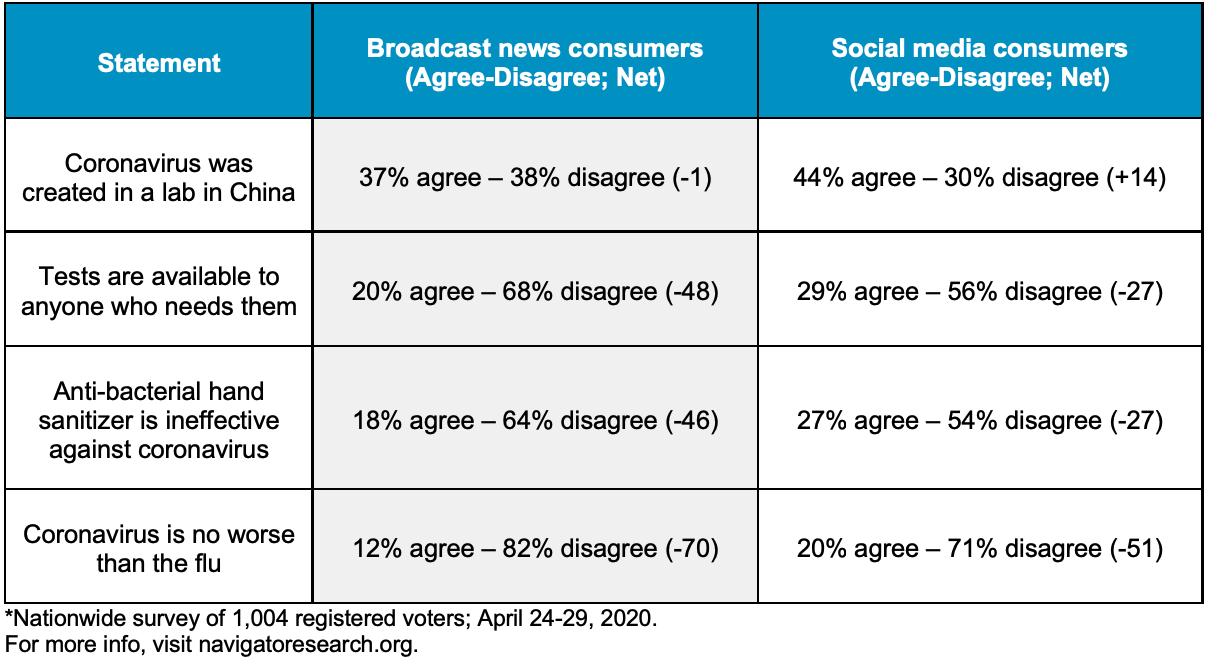Key takeaways:
- Contrary to a pervasive narrative that Big Tech companies have regained people’s trust amidst the ongoing pandemic, an overwhelming majority of the public believe social media platforms do more harm than good in times of crisis.
- By a significant margin, more Americans under the age of 45 rely on social media as a major source of news than any other medium, underscoring the importance of cracking down on misinformation and promoting authoritative, grounded content.
- Americans who listed social media as one of their main sources of news were more likely to agree with a range of false claims and conspiracy theories than those who rely on traditional news sources.
There is significant, cross-partisan concern about the role of social media platforms in spreading disinformation during times of crisis.
Nearly two-thirds of Americans agree that social media platforms do more harm than good because of how quickly they spread disinformation. When asked which of the following statements they agreed with more, even if neither was fully convincing, 65% agreed that “major social media companies do more harm than good in times of crisis: they can quickly spread disinformation that incites panic, confusion, and distrust in real information” over a statement that social media companies do more good because they empower users to get important information quickly (35%).
The position that social media companies are harmful in times of crisis transcended partisanship: over 60% of Democrats, Republicans, and Independents agreed.

There is significant support for social media companies to remove posts from elected officials when they contain misinformation.
While major social media platforms have largely backed away from monitoring the accounts of elected officials, a clear majority of Americans (63%) agree they should remove posts if they contain misinformation, while 37% say they should not be in the business of removing factually incorrect information from their accounts. Democrats agree by a 3-to-1 margin (76%-24%), while Independents (51%-49%) and Republicans are split nearly evenly on the question (53%-47%).
It’s clear there is widespread support for social media platforms to do more to curtail the spread of false content, including from public figures. As reflected in the platforms’ own moderation policies, there are many ways to limit the reach of misinformation that steer far away from censorship, like downranking posts or adding factual context.
Social media platforms are the dominant source of news among younger Americans in particular.
Facebook, YouTube, and Twitter are no longer just social networking platforms or entertainment sites – they are at the center of the modern information ecosystem. For Americans under the age of 45, they are the dominant source of news (55% of younger Americans report getting news from social media), prevailing widely over any other source of news.

Americans who rely on social media for their news are more prone to back conspiracy theories and highly disputed information.
Those who listed social media as a main source from which they get their news were consistently more likely to agree with a range of false claims and popular conspiracy theories than those who get their news from more authoritative sources. This is particularly highlighted when compared to those who get their news from broadcast news, where the percentage agreeing with disputed information is significantly lower than those who get their news from social media.

Americans are evenly split on whether social media platforms go too far in moderating content: 23% say they get it about right, 29% say they do not go far enough, 25% say they go too far, and 23% don’t know enough to say. However, some demographics are more likely to say they go too far, such as white men (32% go too far compared to just 27% not going far enough) while other demographics, such as women (20% go too far compared to 30% not going far enough) and people of color (18% go too far compared to 30% not going far enough) are the opposite.
Trump supporters are overwhelmingly more likely to say platforms go too far in moderating content (40% go too far compared to 19% not far enough) – likely reflecting his refrain that Big Tech is biased against conservatives – while non-supporters say the opposite (14% go too far compared to 37% not far enough).








